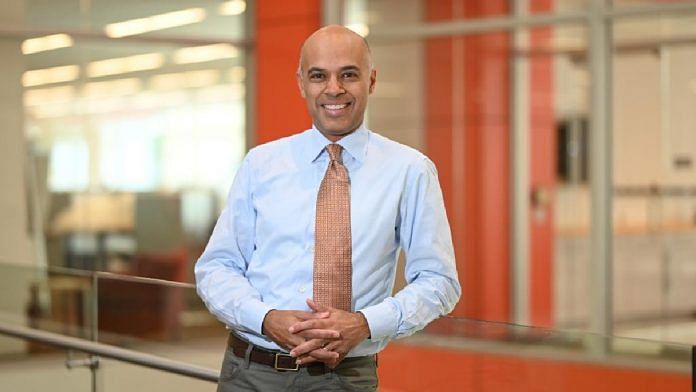New Delhi: We want to bring the science of testing and scoring to the Indian education system, said Amit Sevak, chief executive officer (CEO) of the Educational Testing Service (ETS), during an interaction with ThePrint.
The ETS conducts tests like Graduate Record Examinations (GRE) and Test of English as a Foreign Language (TOEFL), pre-requisites for students intending to study abroad.
The global body is working with the Indian government to help it establish a national assessment regulator called PARAKH (Performance Assessment, Review and Analysis of Knowledge for Holistic Development) which will set up norms and standards for exams, including boards exams and surveys like the National Achievement Survey (NAS). The idea is to bring in parity between the various state boards across the country in terms of their assessment criterion.
The ETS will work in close association with the National Council of Educational Research and Training (NCERT). It will be a multi-year engagement wherein ETS will help establish the guidelines and oversee their implementation.
Sevak said that ETS, being a global assessment platform, is bringing in its expertise in the field to help set up guidelines for states and set standards in terms of how tests should be conducted.
Even as the body will help set up assessment guidelines for the entire K-12 segment (Class 1 to 12), there is huge potential for improving the learning outcomes at the foundational stage because that is where the real challenge lies, he added.
“We are bringing in our experts in psychometrics, which is really the science of testing, an interaction of psychology, statistics and education. We have some of the world’s leading psychometricians who will help in formulating the guidelines. They will establish how tests should be formulated and how scoring should be done,” the CEO said.
“We are focusing on standards, we want to set national policies and guidelines, we are coming in as global technical experts. To begin with, we are focusing on what is the current state [of education system] in India and we will listen to the stakeholders to understand what they want and then we will partner with the NCERT and bring in the guidelines,” he added.
The ETS will also be able to add global context to the assessments in India since it has the experience of conducting PISA (Programme for International Student Assessment), Sevak said.
PISA is a global assessment meant to measure key knowledge and skills of 15-year-old students in mathematics, science and reading.
“In order to set up the guidelines, we will align to the new National Education Policy (NEP) and follow the 5+3+3+4 structure,” he added.
As part of the NEP 2020, school education has been divided into 5+3+3+4 structure, which includes – first five years of foundational learning (preschool to Class 3), then three years of preparatory stage (Class 3 to 5), followed by three years of middle stage (Class 6 to 8) and finally four years of secondary stage (Class 9 to 12).
The level of assessment will be different for different levels and this is where ETS will help PARAKH establish the standards.
Talking about the association, Professor Indrani Bhaduri, head of the Educational Survey Division, NCERT, said: “ETS’s understanding of global best practices in curriculum and assessment will be a great asset in standardising these aspects across the various school boards in the country, thereby paving the path towards quality, consistency and uniformity in the teaching-learning and assessment practices.”
The idea of PARAKH was born out of the need to have a common benchmark for assessment in various state boards. Different methods of assessment by the state boards were leading to huge disparity between scores, reflecting in college admissions. Some state boards are more conservative than others in terms of allotting marks, putting students at a disadvantage.
A meeting was held last year with stakeholders of various states and the government came to the understanding that there is a need for a common assessment regulator.
(Edited by Anumeha Saxena)
Also Read: ‘It’s a waste’— Students who finished China MBBS online struggle with 2-yr internship, no stipend



